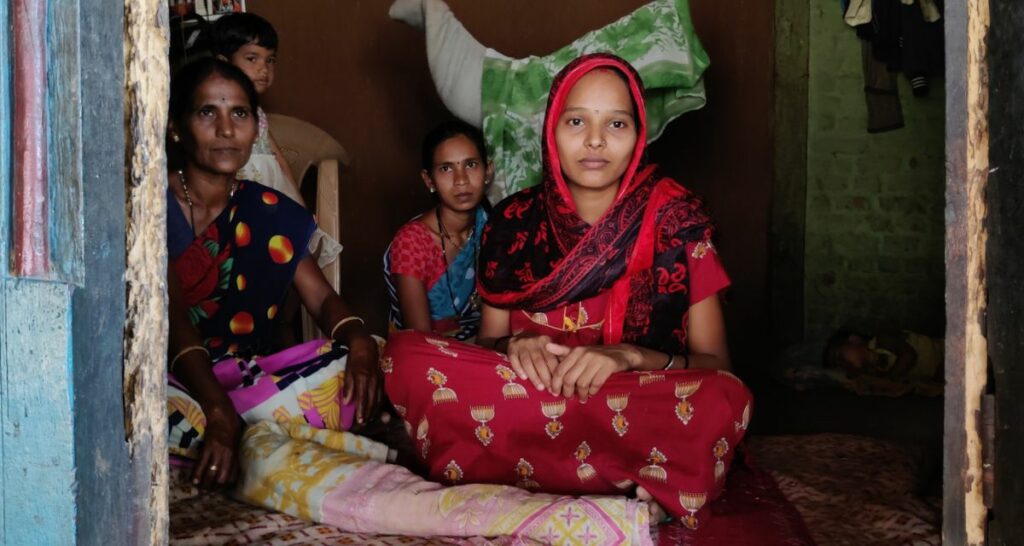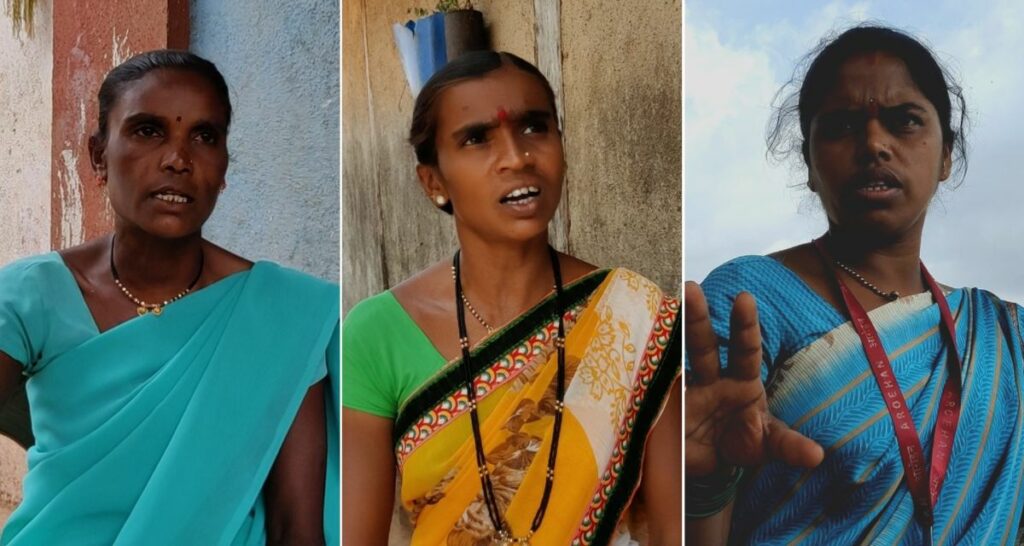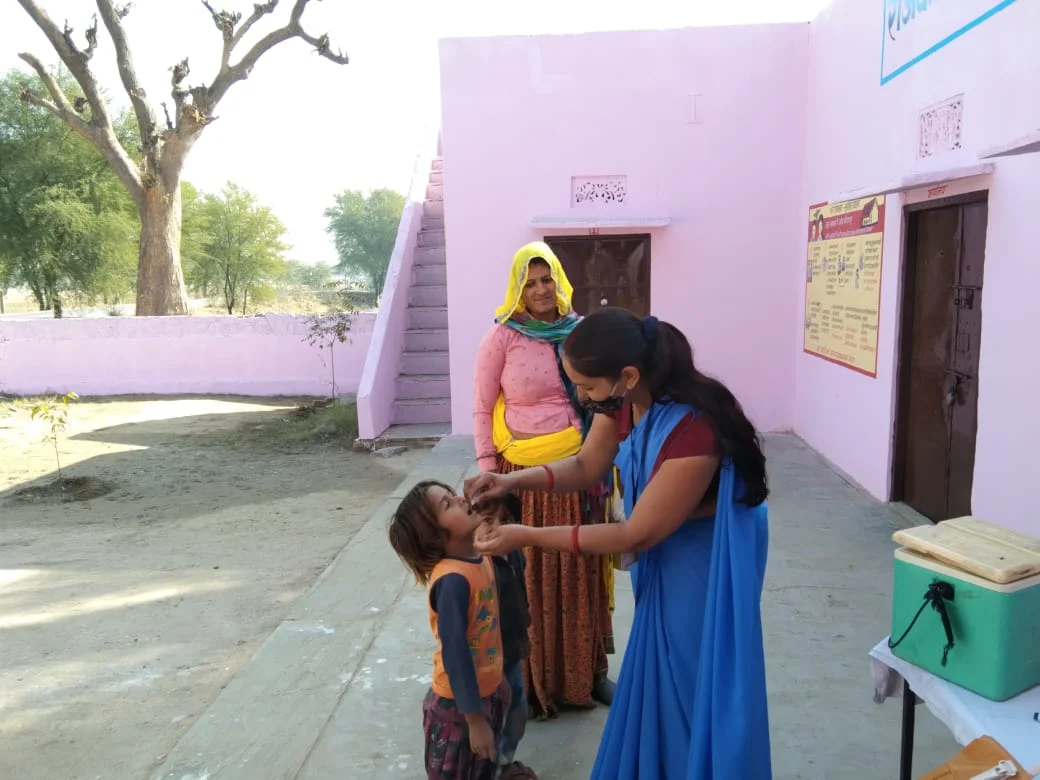Posted by Purnima Sah
Trigger Warning: This story contains first-person accounts of childbirth, stillbirth, and traumatic maternal healthcare experiences, which some readers may find triggering. Reader discretion is advised.
Home births weren’t always a choice. The implementation of lockdown affected emergency obstetric care because most pregnant women in the country still depend on public transport to reach healthcare facilities, especially those in rural areas. Mothers who gave birth during the ongoing pandemic said that the ambulances refused to come or did not pick up their calls.
21-year-old Yashoda Chandrakanthmisa from Ase village birthed her second child at her home on May 18 this year with the help of her mother-in-law and a woman from their neighbourhood, in the presence of an ASHA worker. Recalling the experience to 101Reporters, Chandrakanthmisa shared, “It was raining heavily. My husband tried calling the ambulance, but due to poor network, we could not connect. My water had broken, and with no options left, I laid down on the floor to deliver my child. However, after the birth, the umbilical cord was wedged inside. My husband managed to rent a private vehicle and took me to Mokhada government hospital. I must tell you how uncomfortable and painful it was for the baby and me to travel in a van with the cord still unclamped. The baby was wrapped in a piece of cloth without even being cleaned,” bemoaned Chandrakanthmisa. She added that she had gone to the same hospital a day before as she had experienced slight labour contractions, but the doctor there sent her back saying there was still time. “If only the hospital had admitted me that day, maybe I would not have had to go through these complications,” she said. She was discharged a few hours before sunset as the hospital did not have electricity.

“The hospital also did not conduct any COVID-19 test, even though I had visited twice after the delivery,” complained Chandrakanthmisa. Due to the lockdown, the newborn had not received timely immunisation. She also said that the monthly health camps did not take place from the time the pandemic began.
Jyotsna Madhav Jadhav, a 21-year-old mother, delivered her second child in the middle of the lockdown this year. The birth of her child was not smooth; she had frequent seizures but no sign of labour pain. “We dialled 108 emergency ambulance services, but they said they could not make it on time. My health was deteriorating, but there was no labour pain. My in-laws arranged a private vehicle and took me to Mokhada government hospital, 15 km from our village Nilmati. The doctor there told us that it would be a caesarean birth and referred us to Nashik government hospital as Mokhada hospital is ill-equipped to perform c-sections,” said Jadhav, recounting her ordeal to 101Reporters.

Her son received pulse polio immunisation there, but he has not received the BCG vaccine yet. “The ANM sister visited our home to vaccinate my baby, but we told her that the baby was too weak and asked her to come later. The truth is, the sister visits multiple villages and comes in contact with so many people; so we did not want her to touch our baby and risk his life,” said Jadhav, who works with her husband as contract labour in agricultural lands. In India, the BCG vaccine is recommended for all newborns within two weeks of birth as part of the National Immunisation Programme.
Twenty-six-year-old Renuka Sunil Bhoir from Swaminagar village said she had to walk 3 kms to reach a PHC for routine check-ups. She gave birth to her second child in February this year. “Till the fourth month of pregnancy, I had to travel on a motorcycle to reach the PHC for sonography and routine check-ups. However, after some time, I just couldn’t sit on the motorbike and chose to walk,” lamented Bhoir. When she visited Jawhar hospital for a routine check-up, the doctor asked her to do a sonography test. She went to Mokhada government hospital next, where they asked her to consider inducing labour followed by a caesarean operation and to get it all done in Nashik hospital. “All this terrified me, and I decided to come home. Three days later, I went into labour. With the help of my mother-in-law and brother-in-law, I gave birth at home.” Her brother-in-law has no medical degree. He only knows a little about medical tools by assisting doctors in a hospital.
Also read: In Rural Maharashtra, Expectant Mothers Choose Home Births As Fear Of COVID-19 Prevails
Maternal health regresses as rural health infrastructure comes under pressure
In Wakadpada village, ASHA worker Yamuna Ashok Kamri said that they were understaffed. Just two women look after three hamlets, and in the absence of one, the other person has to carry the weight. “I handle 350 women, and the other ASHA worker handles 750. The ambulance person does not pick up calls. We are seldom lucky to arrange a private vehicle for a mother to reach the hospital; this is why most mothers give birth at home,” said Kamri, who has been working as an ASHA worker since 2007. Kamri also complained that they have no work-life balance. There are also no holidays or weeks off for them. “Most of the deliveries happen at midnight. Even when we manage to take a mother for delivery, we do not know how to get back to the village as there is no transport due to Covid restrictions. There is no arrangement for us to commute from one place to another. How do we walk such long distances?” Last year they received masks and sanitisers from the government, but they did not receive anything this year. “We didn’t even receive non-contact temperature assessment devices, then how are we expected to report the number of people with COVID-19 symptoms?” she questioned.
According to Rural Health Statistics 2019-2020, 14.1% of the sanctioned posts of Health Workers (Female)/ ANM and 37% of the sanctioned posts of Health Workers (Male) are currently vacant in the Sub-Centres. Further, there is a shortage of doctors (1,704 positions) in PHCs across the rural areas, as well as nursing staff (5,772), female health workers (5,066), pharmacists (6,240), and laboratory technicians (12,098).
“An SOP needs to be implemented to manage COVID-19 in rural areas. There is a need to revamp healthcare and invest in skilled human resources such as medical, specialist and paramedical staff,” said Dr Shoba Suri, Senior Fellow, Health Initiative, Observer Research Foundation.
Even before COVID-19, data from 2015-16 have shown the worsening incidence of anaemia in India’s women; the prevalence among rural women (15-49 years old) is more than 50 per cent. In the rural districts, maternal mortality remains high at 143 per 100,000 live births.

The WHO recommends at least eight prenatal check-ups, one ultrasound before 24 weeks of pregnancy and a daily intake of iron and folic acid supplements to prevent maternal anaemia, neural tube defects and preterm birth, but from the time the pandemic hit India, many women in the rural areas have avoided the above recommendation.
Parvati Dattushid, an Anganwadi worker for the past 15 years, said the ration supply had been disrupted since the pandemic hit. “I have to rent a motorcycle and source the ration from town in two parts because the nutrition of many women in the village depends on the Anganwadi’s supply,” said Dattushid, who provides weekly ration to the mothers.
Sunita Ashok Warghade, Project Community Mobiliser from NGO Aroehan, said that very few women visited health centres for basic health check-ups during the pandemic. “Recently, I convinced two expectant mothers to go for sonography. Their families did not agree to it. We visit door-to-door to educate people about the virus, the importance of testing and consulting doctors for health concerns, but only a few get our message. We had set up multiple vaccination camps, but not a single villager turned up,” said Warghade, who looks after 15 villages.
“Rural healthcare has always been neglected. It was slowly getting better with the National Rural Health Mission, but with COVID-19, everything is back to square one,” said Kaustubh Gharat from Aroehan.
Also read: Structural Barriers To Safe Abortion Services In India: 16 Days Of Activism Against GBV
Purnima Sah is a multimedia journalist with over seven years of experience. Before becoming a full-time freelance journalist in 2020, she was with Times of India and Deccan Chronicle Holdings Ltd. She is passionate about women’s issues, human rights, gender, environment and rural India.
This story was published by 101 Reporters and has been re-published here with consent
Featured Image Source: 101 Reporters
About the author(s)
101Reporters is a pan-India network of grassroots reporters that brings out unheard stories from the hinterland.





